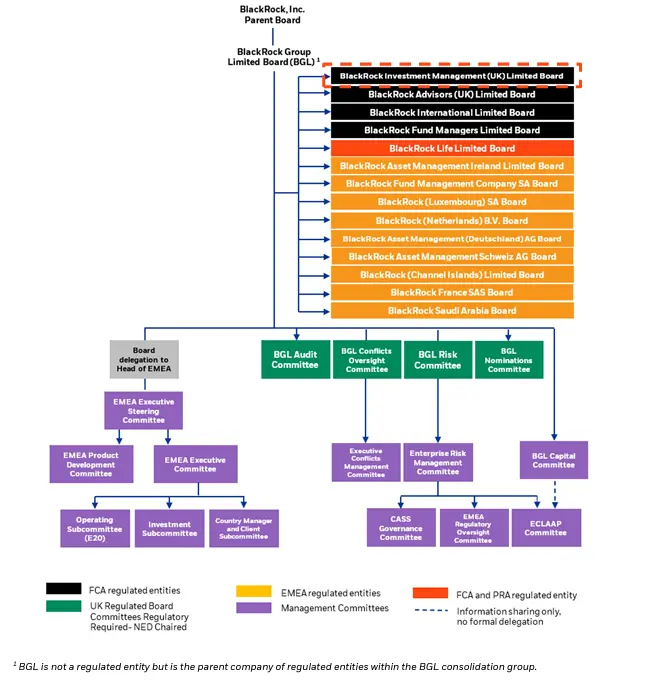Both BlackRock and Blackstone stand as titans in the world of asset management, headquartered in New York City.
- BlackRock
- Strengths:
- Weaknesses:
- Blackstone
- Strengths:
- Weaknesses:
- Differences between Blackstone vs BlackRock
- 1. Company Structure
- 2. Core Business Models
- Key Differences between BlackRock and Blackstone in Investment Approach
- 1. Investment Sector Strategies BlackRock vs.Blackstone
- 2. Social Impact of BlackRock vs.Blackstone
- 3. Financial Showdown: BlackRock vs Blackstone
- 4. BlackRock vs Blackstone in Products and Services
- 5. Management and Leadership between BlackRock vs.Blackstone
- 4. Market Reach and Global Impact
- 5. Growth Strategies (2025)
- 6. Emerging Challenges and Opportunities
- Overview of BlackRock vs Blackstone
- Conclusion
- Comparative Advantages and Disadvantages
- Investor Insights
- My Final Thoughts
- Frequently Asked Questions
These financial giants provide a comprehensive range of services encompassing bonds, stock acquisitions, and a myriad of other financial instruments.
In this article, let’s delve into discovering the differences between these two giants, shedding light on their services, company structure, products, and services that they offer. Whether you are a seasoned investor looking to diversify your portfolio or an aspiring financial enthusiast, understanding the nuances of BlackRock and Blackstone is a captivating journey that offers.
Let’s find out the differences between BlackRock vs Blackstone:
 BlackRock
BlackRock
BlackRock, famously known as the global leader in asset management, specializes in passive investments such as fixed-income and corporate risk management.
It has operations in over 30 countries, and a client service spanning over to more than 100 nations.
BlackRock has garnered a good reputation similarly to being a global investment dominance, holding significant stakes in companies such as Apple, Microsoft, P&G, Amazon and even Pfizer.
Strengths:
- Long-term vision: The company focuses on an asset’s long-term growth potential focusing on the potential for clients to increase profits through compounding returns.
- User-centric approach: BlackRock streamlines the investment process making more user-friendly and simplify the complexities of investing.
- Accessibility for investors: BlackRock works with institutional and individual investors, allowing for a wide range of investors to invest in.
- Diverse investment products as Index Fund Pioneers: A comprehensive spectrum of investment opportunities, spanning from stock portfolios, ETFs, mutual funds and various other investment vehicles. The diversification reduces the overall risk exposure for both private and public investors.
Weaknesses:
- Limited focus on alternative investments: Focusing mainly on traditional investment strategies only, for example, stocks, funds and bonds. However, BlackRock has a specific division, BlackRock Alternative Investors (BAI), covers private investments which works exclusively with institutional investors.
Blackstone
What does Blackstone do? The Blackstone Group, an investment powerhouse, primarily manages assets concentrated in the United States, where it originated, and Europe. While its global footprint may not rival that of BlackRock, it proudly holds the distinction of being the largest private equity firm worldwide.
Blackstone distinguishes itself through its prominent involvement in the realm of private equity investments, often making headlines for its bold and at times, controversial maneuvers.
Initially established with the primary objective of acquiring and merging companies, Blackstone has evolved over time to diversify its portfolio, positioning itself as a versatile alternative investment bank. Its operations now encompass a wide spectrum of financial activities, including the management of distressed companies, debt investments, real estate management, and, of course, equity investment.
Strengths:
- Expert in alternative investments: The firm assists instituitional investors find private opportunities that are not offered in the stock market.
- Hands-on-management: The company advise about operational efficiency to organisational structure. Thus, providing direct hand on its investment’s profitability.
- Global footprint: With the glarious name of BlackStone, the company has a strong presence in the global financial scene and you would be able to find any alternative investments globally.
Weaknesses:
- Low liquidity: The assets are not liquid as BlackStone invests in alternative investments that do not trade publicly. Due to this reason, investors may not have the chances to capitalise on other investment opportunities that would arise.
- High capital needed: Most of the clients have to fund high-risk and high reward investments which require a lot of capital.
- Limited investments for retail investors: BlackStone only focuses on high net-worth individuals and institutional investors.
Differences between Blackstone vs BlackRock
1. Company Structure
To kick things off, let’s take a simple and straightforward dive into the organizational framework of BlackRock.
Take a look at the governance structure of BlackRock group and its regulated subsidiaries:
Photo credit: BlackRock.com
Blackstone:
With Blackstone Inc. as the main parent company, there are four subsidiaries under it:
- Blackstone Partners L.L.C
- Blackstone Group Management L.L.C
- The Vanguard Group, Inc.
- BlackRock, Inc.
Now, I will share with you some of the companies listed under Blackstone’s four main business segments (these segments are not legal entities):
1. Credit and insurance
– Blackstone Credit
– Blackstone Private Credit Fund
– Blackstone Secured Lending Fund2
2. Private Equity
– Blackstone Capital Markets
– Blackstone Core Equity Partners
– Blackstone Total Alternatives Solution
– Blackstone Growth
3. Real estate
– REITs
– Core+
– Blackstone Property Partners
– Blackstone European Property Income
4. Hedge fund solutions
– Blackstone Alternative Asset Management
2. Core Business Models
BlackRock’s Focus on Passive Investment
BlackRock has established its presence as a pioneer in the past investment area – the index fund industry by popularizing exchange-traded funds (ETFs) that cover various asset classes.
Blackstone’s Private Equity Operations
BlackStone is the leader in the private equity sector, with a strong specialization in acquiring and managing companies privately. The main focus is to generate higher risk-adjusted returns for investors by determining assets that are undervalued and employ active management strategies to enhance their value.
Key Differences between BlackRock and Blackstone in Investment Approach
1. Investment Sector Strategies BlackRock vs.Blackstone
BlackStone has a notable specialization in real estate investments that leverages on its expertise to determine great investment opportunities in real estates that could be ranging from residential developments to commercial properties.
BlackRock places a strong emphasis on technology and innovation, focusing on using technological solutions to improve efficiency and provide data-driven insights as part of its investment strategies.
2. Social Impact of BlackRock vs.Blackstone
BlackRock engages in socially responsible investments and pays strong attention to Environmental, Social and Governance (ESG) factors to deliver strong results for clients.
BlackStone commits to philanthropy and social impact investing strategies as well with a strong active participation in initiatives to promote positive changes in the investments. These include addressing societal challenges to create long-term sustainable solutions.
3. Financial Showdown: BlackRock vs Blackstone
a. Revenue Streams
BlackRock
BlackRock generates revenue primarily through fees for its asset management services. These include managing mutual funds, ETFs, and institutional accounts. Other significant revenue streams include:
- Technology Solutions: Offering risk management platforms like Aladdin to institutional clients.
- iShares ETFs: A major contributor to BlackRock’s revenues, capitalizing on the growing popularity of passive investments.
Blackstone
Blackstone derives its revenue from managing private equity, real estate, and hedge funds. Additional revenue streams include:
- Performance Fees: Earned based on the success of investment funds.
- Real Estate Income: Rental income and appreciation from properties under management.
b. Financial Highlights (2025 Update)
BlackRock
- Assets Under Management (AUM): $10 trillion as of December 2024, reflecting steady growth from 2023.
- Revenue: For the year ending December 31, 2024, BlackRock reported revenue of $18.1 billion, a slight increase of 4.3% year-over-year.
- Quarterly Performance: In Q4 2024, the company’s revenue was $4.7 billion, marking a 5% growth compared to the same period in 2023.
Blackstone
- Assets Under Management (AUM): $1.3 trillion as of December 2024, showcasing a significant expansion in private equity and real estate portfolios.
- Revenue: Blackstone reported total revenue of $8.5 billion for the year ending December 31, 2024, a 22% increase year-over-year.
- Quarterly Performance: In Q4 2024, revenue reached $3.1 billion, reflecting a 15% increase compared to Q4 2023.
c. Risk and Volatility Factors
BlackRock
- Market Dependence: As a leader in passive investments, BlackRock’s revenue is heavily reliant on market performance and investor sentiment.
- Fee Compression: Growing competition in the ETF space has led to downward pressure on management fees.
- Regulatory Challenges: Increasing scrutiny on ESG investments could impact product offerings.
Blackstone
- Market Cycles: Performance is tied closely to real estate and private equity cycles, making revenue more volatile.
- Valuation Risks: Economic downturns can negatively impact real estate valuations and private equity exits.
- Regulatory Landscape: Stricter oversight of alternative investments could affect operations.
4. BlackRock vs Blackstone in Products and Services
BlackRock:
- Asset management services including mutual funds, ETFs, Institutional accounts.
- Risk management solutions: BlackRock offers risk management services and tools to mitigate risks involved in investments.
- Technology solutions: BlackRock’s most iconic technology solution, Aladdin, is an investment management platform used by institutional investors and financial institutions.
- Sustainable Investing: The company is known to focus on sustainable investing, and pay strong attention to ESG factors.
BlackStone:
- Real Estate: Blackstone has a real estate division that invests in various real estate assets, such as commercial, residential, and industrial properties.
- Financial Advisory: Blackstone offers financial advisory services, including mergers and acquisitions (M&A) advisory and strategic consulting.
- Private Equity: Blackstone acquires and manages private companies to enhance their value and generate returns for investors.
- Life Sciences: A division called Blackstone Life Science (BXLS) focused on life sciences investments, including pharmaceuticals, biotechnology, and healthcare services.
5. Management and Leadership between BlackRock vs.Blackstone
Let us take a look into differences between BlackRock and Blackstone in leadership structure and management approaches:
BlackRock:
The hierarchy structure starts with the Global Executive Committee (GEC) as the top decision-making team at BlackRock and on top of it is the Chairman and Chief Executive Officer, Larry Fink, and Rob Kapita who serves as the President.
The other positions on the GEC team (headquartered at New York) include:
- Deputy Chief Financial Officer
- Chief Operating Officer Global Head of BlackRock Solutions
- Global Head of Human Resources
- Vice Chairman
- Chief Investment Officer of ETF and Index Investments
- Chief Legal Officer
- Head of BlackRock Global Markets
- Global Head of the Aladdin Business
- Global Head of iShares and Index Investments
- Chief Investment Officer of Global Fixed Income
- Global Head of BlackRock Systematic
- Chief Financial Officer
- Global Head of Corporate Strategy
- Global Head of Technology and Operations
- Head of the Global Client Business
- Head of Europe, Middle East, and Africa
- Global Head of BlackRock Alternatives
- Chief Risk Officer Head of the Risk and Quantitative Analysis
- Head of External Affairs
- Head of Great China
Following this consists of the Board of Directors with seasoned experiences in the financial industry. There comes the leadership team after, which provides guidance on corporate strategy and business analysis, including ensuring effective communication with external stakeholders.
The last on the hierarchy is the CEO and a small Executive team.
Blackstone:
Stephen Schwarzman is the Chairman, Co-Founder and CEO of Blackstone with many senior executives foreseeing different aspects of the company.
A few senior executives under Stephen Schwarzman are:
- Tony James, Executive Vice Chairman
- Jonathan Gray, President & COO
- Michael Chae, Chief Finance Officer
- Christine Anderson, Global Head of Corporate Affairs
- Joseph Barratta, Global Head of Private Equity
4. Market Reach and Global Impact
BlackRock
- Presence: Operates in over 38 countries with 89 offices globally.
- Workforce: Employs more than 18,000 individuals as of 2025.
Blackstone
- Presence: Maintains 30 offices worldwide with a strong focus on alternative investments.
- Workforce: Over 5,500 employees as of 2025, reflecting growth in key markets.
5. Growth Strategies (2025)
BlackRock
- Sustainable Investments: BlackRock is expanding its ESG-focused funds, aiming to meet the increasing demand for sustainable and socially responsible investment options. This includes launching innovative products that integrate ESG metrics with high-performance financial strategies.
- Technology Integration: Enhancing the capabilities of Aladdin, its risk management and portfolio management platform, to attract more institutional clients and solidify its dominance in the fintech space.
- Diversified Allocation Models: Promoting balanced funds like the 80/20 and 60/40 allocation strategies, designed to provide stability and growth for retail and institutional investors alike.
- Emerging Market Focus: Expanding its footprint in developing markets where ETF adoption is on the rise, providing new revenue streams and diversification opportunities.
Blackstone
- Private Equity Expansion: Blackstone continues to close record-breaking funds, such as the $30 billion secondary fund raised in 2024. The company is doubling down on sectors like healthcare, technology, and renewable energy.
- Insurance Partnerships: Strengthening collaborations with global insurers, managing up to $70 billion in private assets and extending its reach in long-term capital management.
- Infrastructure Development: With a focus on renewable energy and smart infrastructure projects, Blackstone is positioning itself as a leader in sustainable investments. Recent investments include offshore wind farms and urban redevelopment projects in emerging economies.
- Enhanced Real Estate Strategies: Building on its expertise in real estate, Blackstone is diversifying into logistics hubs and data centers to capitalize on the digital economy’s growth.
6. Emerging Challenges and Opportunities
BlackRock
- Challenges:
- Increasing regulatory scrutiny on ESG-related funds could lead to higher compliance costs and product limitations.
- Continued fee compression in the ETF market challenges profitability.
- Market fluctuations driven by geopolitical and macroeconomic instability.
- Opportunities:
- Rapid growth of ETFs in Asia and Latin America offers untapped markets.
- Expansion of digital advisory services to cater to younger, tech-savvy investors.
- Partnerships with fintech startups to integrate AI-driven investment tools and expand its technological offerings.
Blackstone
- Challenges:
- Volatility in private equity valuations due to rising interest rates and slower global growth.
- Regulatory changes impacting the alternative asset space, including stricter disclosure requirements.
- Increased competition in real estate and private credit markets.
- Opportunities:
- Leveraging its expertise in alternative investments to dominate renewable energy projects and ESG-friendly infrastructure.
- Growing demand for private credit solutions amid tightening bank lending standards.
- Expanding partnerships with sovereign wealth funds and institutional investors to scale its AUM.
Overview of BlackRock vs Blackstone
Is BlackRock a good investment? Or Blackstone is more favourable?
Well, too much information can be overwhelming. Take a look at the overview below provides a snapshot of the key differences and some notable similarities between BlackRock and Blackstone, to help you grasp their characteristics at a glance.
| Aspect | BlackRock | Blackstone |
| Core Business Model | Asset Management | Private Equity and Alternatives |
| Fund Strategy | Passive Investment | Active Asset Enhancement |
| Investment Vehicles | Stocks, Bonds, ETFs | Real Estate, Private Equity |
| Global Presence | Extensive | Focused on Alternatives |
| Investor Base | Institutions and Retail Investors | High-Net-Worth and Institutions |
| AUM (2025) | $10 Trillion | $1.3 Trillion |
Conclusion
While there are differences between BlackRock and Blackstone, it illuminates the captivating dynamics of two financial giants with each offering a unique niche in the investment realm.
Comparative Advantages and Disadvantages
BlackRock is becoming a giant in asset management, offering unparalleled scale and stability with its range of passive investment products. Its global reach and well diverse products make it the first choice for many investors. One concern is that its sheer size has raised concerns about potential conflicts of interest.
However, Blackstone excels in private equity and alternative investments, leveraging its expertise in strategic acquisitions and advisory. Despite the higher risks associated with its specialisation, the huge profit potential of this niche remains undeniable.
Investor Insights
Investors should carefully consider their risk tolerance and investment objectives.
If you are an investor who is looking for stability and wants to diversify your portfolio through traditional investing, BlackRock may be a top choice, while Blackstone appeals to those willing to take calculated risks for potentially rich returns.
My Final Thoughts
BlackRock and Blackstone both occupy important positions in vast financial networks and shape the investment landscape.
The choice between them ultimately comes down to personal preference and goals as an investor. Whether you choose BlackRock’s proven stability or the allure of Blackstone’s alternative investments, one thing is for sure: The financial world is a richer place for these two giants.
The financial landscape is ever-changing and evolving. The competition and collaboration between BlackRock and Blackstone continue to redefine the contours of the investment world, offering investors with a fascinating journey full of opportunities and wide-array of choices.









